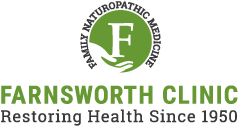Patient Information
Our treatment process includes an intake procedure which allows us to better get to know our patients. This may be followed by a variety of tests and examinations to determine not only what needs treatment but how best to treat both the person and their condition.
This thorough intake process allows us to learn your unique circumstances and apply them into context collectively, with physical examination and laboratory analysis.
It has been said that a doctor’s best medical reference sits across from them. The opportunity to listen and hear empowers both patient and physician.
Physical examinations may be undertaken in order to screen and evaluate findings from each of the body’s systems, or may be undertaken with a specific focus on a given concern.
Examinations include evaluations of vitals – such as blood pressure, oxygenation levels, pulse rates, weight and body temperature – as well as the condition or state of neurological, ear, nose and throat, cardiopulmonary, abdominal, genitourinary, musculoskeletal and vascular systems.
Laboratory analysis is employed to measure baselines, establish treatment protocols and evaluate progress. Lab assessments include blood tests, food allergy and sensitivity tests, skin allergy tests, salivary hormone tests and gastric pH test as well as urinalysis and stool analysis.
Standard blood tests are employed to measure inflammatory status, immune function, organ systems, nutritional status, hormone levels and cardiovascular health. Food allergy and sensitivity tests evaluate for food-borne triggers to disease. Skin allergy tests determine air-borne triggers and guide desensitization care. Salivary tests are used to establish baselines in reproductive, stress and pituitary hormones. Gastric pH tests measure stomach acid levels, especially pertinent to digestive and assimilation concerns. Urinalysis serves as a screening tool to investigate urinary tract infections and renal disease. Stool analysis can be applied to identify parasites, assess for inflammation or blood loss and analyze the digestive process.
Laboratory analysis is applied from two perspectives: The disease model (known as abnormal findings) and the health model (known as optimal findings). The health model of analysis lends itself particularly well to preventative medicine.
The collection of objective data, when integrated with a patient’s medical history permits a more thorough understanding of health concerns and allows for an individualized care plan.
Care Plans
Care plans are patient-centered and individualized according to the findings of a thorough history, examination and laboratory evaluation. Therapies include:
We consider exercise regimes to be one of the most important stress-relieving strategies we employ at the Farnsworth Clinic, because this type of stress-management is available to nearly all of our patients. Furthermore, we tailor dietary corrections and sleep hygiene protocols (enhanced with botanical and nutritional medicines) to enable the body to cope with stresses more effectively. These are among the safest strategies for achieving what is certainly a critical part of healthy living.
Naturopathic Spinal and Extremity Manipulation
Structure determines function. If a person’s spine or weight-bearing joints are misaligned, functions such as posture and gait are affected. Joints are intended for movement, thus moving joints shouldn’t hurt. Naturopathic manipulation strives to improve the normal range of motion of joints while carefully supporting their surrounding connective tissues.
We employ therapies such as ultrasound, electrical muscle stimulation, shortwave diathermy and traction to support joint manipulation. These therapies lend themselves well to the management of inflammation and spasms associated with acute injury, such as sprains and strains, as well as chronic conditions such as osteoarthritis
In neural therapy, local anesthetic and nutrient therapies are applied in order to manage acute and chronic pain.
Structure determines function. By correcting problems associated with feet, we improve function of related structures, such as gait. Orthotics also reduce the referral of ailments from feet to other parts of the body, such as knees and hips.




